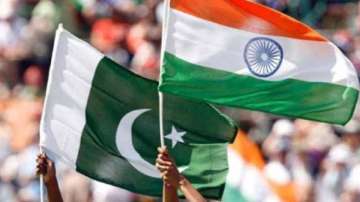On August 5, Home Minister Amit Shah announced that the government has scrapped the special status granted to Jammu and Kashmir by revoking Article 370 of the Constitution. Furthermore, the government also ordered the division of Jammu and Kashmir into two Union Territories. While the Union Territory of Ladakh will be without a legislature, the Union Territory of Jammu and Kashmir will be with a legislature. Earlier today Pakistan shut Samjhauta Express.
Following the decision, Pakistan banned Indian films from being screened in cinemas across the nation, its government announced on Thursday.
Firdous Ashiq Awan, special assistant to Prime Minister Imran Khan on Information and Broadcasting, claimed this action was in retaliation to India's abrogation of the Constitution's Article 370, which gave special status to the state of Jammu and Kashmir and allowed it to have a separate constitution, a state flag and autonomy over the internal administration.
Also Read: Pakistan Shuts Samjhauta Express
This is not the first time Pakistan has banned Indian films. Apart from refusing release of various Indian films regularly on grounds of censorship, Pakistan has been refusing release of Indian films -- particularly Bollywood products -- almost every time the political atmosphere between the two nations becomes tense.
In recent times, Pakistan has banned various Hindi films owing to different reasons. While Raazi, Aiyyari, and Parmanu: The Story Of Pokhran are among films to have been banned owing to what Pakistan felt was politically objectionable content, Mulk was banned because the country's censor board felt the film's portrayal of Muslims in India was not right. "Pad Man", "Veere Di Wedding", and Pari have been among other films refused a release in Pakistan even at normal times.
Talking to the media outside Parliament House on Thursday, Awan claimed her government was making various efforts to highlight the current Kashmir situation internationally. These include consultations at the United Nations by Pakistan's Representative Maleeha Lodhi, and contacting heads of governments of other countries, besides diplomatic engagements, reports dunyanews.tv.
Besides films, every other Indian cultural content has also been banned from Pakistan.
It is worth mentioning that Pakistani artists have been facing a blanket ban from several film associations in India ever since the terrorist attack in Pulwama in February this year. The Hindi film industry has stood firmly on its stance – a song sung by Atif in the Salman Khan-produced Notebook was replaced with another singer’s voice. Despite being a popular choice in the Hindi music scene, Atif has not had a song in an Indian film in the last six months.
Earlier, Pakistani actress Mahira Khan, too, denounced India’s big move. In a tweet, posted on Monday, she said, “Have we conveniently blocked what we don’t want to address? This is beyond lines drawn on sand, it’s about innocent lives being lost! Heaven is burning and we silently weep.”
Meanwhile, Pakistani singer Atif Aslam, in a tweet “strongly” condemned “the violence and tyranny being conducted against the Kashmiris”. Atif was clearly alluding to the scrapping of provisions of Article 370, that granted special status to Jammu & Kashmir, and its bifurcation into two Union Territories by the government of India. An extremely popular name in India, the singer prayed for the “lives of the innocent in Kashmir and all over the world”.
(With IANS Inputs)
